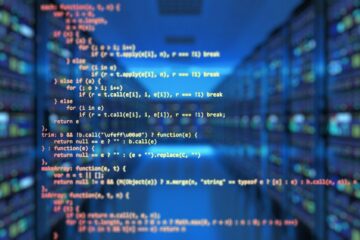![]()
Introduction:
In the modern world, Digitalization makes its own identity. Digitalization makes every work fast and paperless. It can be considered a precious gift for those who use online transection and business both nationally and internationally. In today’s world, electronic contracts have become normal use. Electronic commerce is the transection of international trade that is carried out by the methods of electronic data interchange and various modes of electronic communication. It is considered as the alternative method of communication of paper-based communication and also for the storage of information.
The means of a model law on electronic commerce provide a set of accepted international rules with the main objective to reduce the legal obstacles and increase the legal predictability for Electronic Commerce by UNCITRAL. The word UNCITRAL stands for The United Nations Commission on International Trade Law. It will increase the accuracy in international trade by providing proper treatment or infrastructure on paper and electronic-based information and also increase the communication in electronic mode.
History
Globalization and a high increase in digitalization made a big change in the way of communication for businesses. It can be considered as the second way of communication by electronic mode and also store the information. The United nation Commission on International Trade Law decided to create a new model of law to make changes in the way of communication by making it fast and eliminate the obstacles. It provides a set of accepted international rules to the various nations for evaluation and to modernize the practice and their law in a commercial relationship with the use of the computerized mode of communication for commerce. In 1996, the united nation commission on international trade law adopted the UNCITRAL model of the law of E-Commerce.[1]
In 1984, The report of the 17th session of the secretary-general was considered by the commission on various legal issues that are related to electronic commerce like the requirement of written authentication, general conditions, computer records, bills of lading liability, and like that. This report suggested the arising issue in E-commerce for the international trade law. The security understood the legal issues in 1985 that arose due to the requirement of documents that had to be signed or be in the form of a paper by using the computer in International Trade. Some rays of progress came to be seen after the rejection of that is in electronic form.
In 1988, The commission proposed to check the requirement of legal aspects that are necessary and applicable for creating an International Electronic Contract.
The UNCITRAL model of laws for E-Commerce
The model law of E-commerce established rules and regulations for the creation of valid E-contract by the attributions of data, emails, and messages and also require the acknowledgment of these receipts. It provides uniformity in the laws that are related to E-commerce and for the relevance for their communicated data by electronic mode.
This model law for E-commerce is divided further into two major parts.
- General provision
- Specific provision[2]
General Provision
It includes the provisions that talk about the sphere of application in communication and their interpretational tools, Application for requirements of legal data messages, and also the communications of data and messages. Now we will discuss all the provisions one by one.
The Principles of Non-Discrimination
The principle of non-discrimination has been enforced under article 5 which talks about the communication of information by electronic mode. This information which is sent by electronic mode has legal validity as per article 5. [3]This information by data messages has been considered valid and will be enforceable by a court of law. According to the requirement of the notion of these documents, the documents should be written and considered valid only when it has a handwritten signature as an authentication. In the case of data messages accessibility, there is no document required in writing and recognition of electronic signature for the approval of a valid contract. These provisions are relevant in every circumstance of the relevant agreement and these agreements are discussed under articles 6 and 7 of this law.
There is a landmark judgment named Chwee Kin Keong and others v. Digilandmall com. Pvt. Ltd., In this case, the wrong price of the product was quoted on the website of the company. When the order was placed by the buyers the server of the company sent an automatic mail regarding the confirmation of the product and their actual price. Then the buyer filed a case regarding the wrong price shown on the website. In this case. The Singapore court found that the contract was established by mistake in the price of an object. And the court gives judgment by keeping the Singapore electronic transaction Act in mind that the communication rule was applied to avoid injustice and asked the company to give compensation to the buyer. In this case, the court also recognized different types of mistakes that vitiate the contract at any time. These mistakes or error are given as below:-
- Software mistake
- Human mistake
- The problem of communication system[4]
Article 8 of this law describes the notion of originality which means that data and messages should need to follow all the requirements of presentation and retention of information in their original form. As per article 9 of this law, the data messages cannot be declined by the court on the ground that the information is in the form of data messages and these messages have a value equal to the original one.
Communication of Data Messages
The communication of data messages was very necessary to communicate from offeror to the acceptor and sender to receiver or vice versa to make a valid contract and also understand the views of another person regarding any other E-commerce while the accepted rule of communication by the post is that the acceptance will be considered accepted from that moment when the later is post[5]. When data messages are communicated from the offeror to the acceptor or vice versa then no one can be denied the validity of these contracts on the sole basis that the contract was created by the mode of E-commerce. Hence the contract that takes place by electronic mode will have the equal status of the contract that made in physical format.
Specific Provision
The 2nd part of this model law is known as the specific provision. It includes the article 16 and 17 of this law, which talks about the carriage and transport of goods and documents according to their needs. They enacted the law related to the ability of carriage of goods and important documents and to fulfill the requirement. It can be considered imperative for making international trade easy and secure. This part has been done by various legislative texts like the “Rotterdam Rules”. It can also be considered as the subject to additional work in the future for the UNCITRAL.
Fundamental Principles of modern Electronic Commerce Law
These principles are given as below:-
- Principles of non-discrimination: It guarantees that no documents will be denied the legal validity of documents, enforceability, and their effects on the ground that it is in the form of electronic mode.
- Principles of Technological neutrality: It makes the provision to moderate such type of neutral aspects for the use of technology. Its main objective is to accommodate future development without any further legislative action.
- The Functional Equivalence Principles: It helps us to set out the particular requirement that is necessary to fulfill the condition for the smooth functioning in communication by electronic mode.
Purpose of UNCITRAL model law on E-commerce
The main purpose of UNICTRAL is to promote sustainable development and to achieve sustainable goals in different areas. It formulates the harmonized rules for commercial transactions to promote international trade in a smooth way. It includes fair and conventions, rules and regulations, nice practical value, updated notification for various enactment of the law, national and international seminars, and also contains the updated case laws. The model law of e-commerce tries to facilitate and make enable us to make E-commerce or contract obstacle-free and increase the validity by providing a set of accepted international rules. It tries to reduce the legal obstacles that are arising due to statutory provision by providing the equal value of information in both paper-based and electronic data messages. UNCITRAL provide a model of the law that suggests the various patterns to the lawmakers of the different countries so that they can consider adopting these laws.
Conclusion
The changing era of technology requires a new solution to solve new coming issues of technology. The UNCITRAL bring a new turn point in the model of E-commerce law by suggesting various models of laws to various nations. India is also not behind in the case of enacting these legislations. But there is a problem relating to the neutrality of technology that is envisaged in this model law. This model law of E-commerce provides a stipulation in the technology.[6] We can say that UNCITRAL plays a very crucial role in the development of a framework that will promote and create awareness about the model law of E-commerce and the benefits of its use and suggest various nation adopt it in both legislative and non-legislative system for their development in various areas of trade in electronic mode. The framework will be negotiated by the various nationalities that are participated in the international procedure.
As a result, UNCITRAL is widely accepted by the various nations to solve their problem that will arise in the course of the electronic contract and commerce trade. It achieved the validation and recognition of E-contracts and also achieved the validating of originality and retention of documents by electronic modes by providing a set of accepted rules by various countries. It also provides validity of electronic signature in commerce and trade. It reflects the idea of the transition of the trade from paper-based to electronic form. So, we can say that there is a need to accept such types of legislative texts that reflect the needs and importance of various laws and principles for international trade and commerce. And hence the legislation needs to rectify the loopholes to enable the prudence of commercial.
References:
[1] General Assembly Rsolution 51/162,16th December 1985
[2] UNCITRAL Model of law on electronic commerce with the guide to Enactment 1996 with aditional article 5 bis as adopted in 1998, United Nation, New york, 1999, https//www.unitral.org/pdf/english/text/electronic/05-89450_Ebook.pdf.
[3] Added by UNCITRAL at its thirsty-first session, in june 1998.
[4] Chwee Kin Keong & others v. Digilandmall.com pvt. Ltd., (2004) 2 SLR 594; (2004) SHG 71.
[5] Manilal v. Venkatachalapathy (1994) Mad.95;
American Pipe Co. v. the state of U.P., AIR 1983 cal. 186;
Partap Chandra v. Kali Charan, AIR 1952 Cal 32;
Kamisetti Subhiah v. Katha Venkataswamy (1903) 27 Mad.
[6] Reccomendations made by Ascl To Government of India for Amendments to the Information Technology Act, 2000, Asian School of cyber blogs, may 10 , 2004.



0 Comments